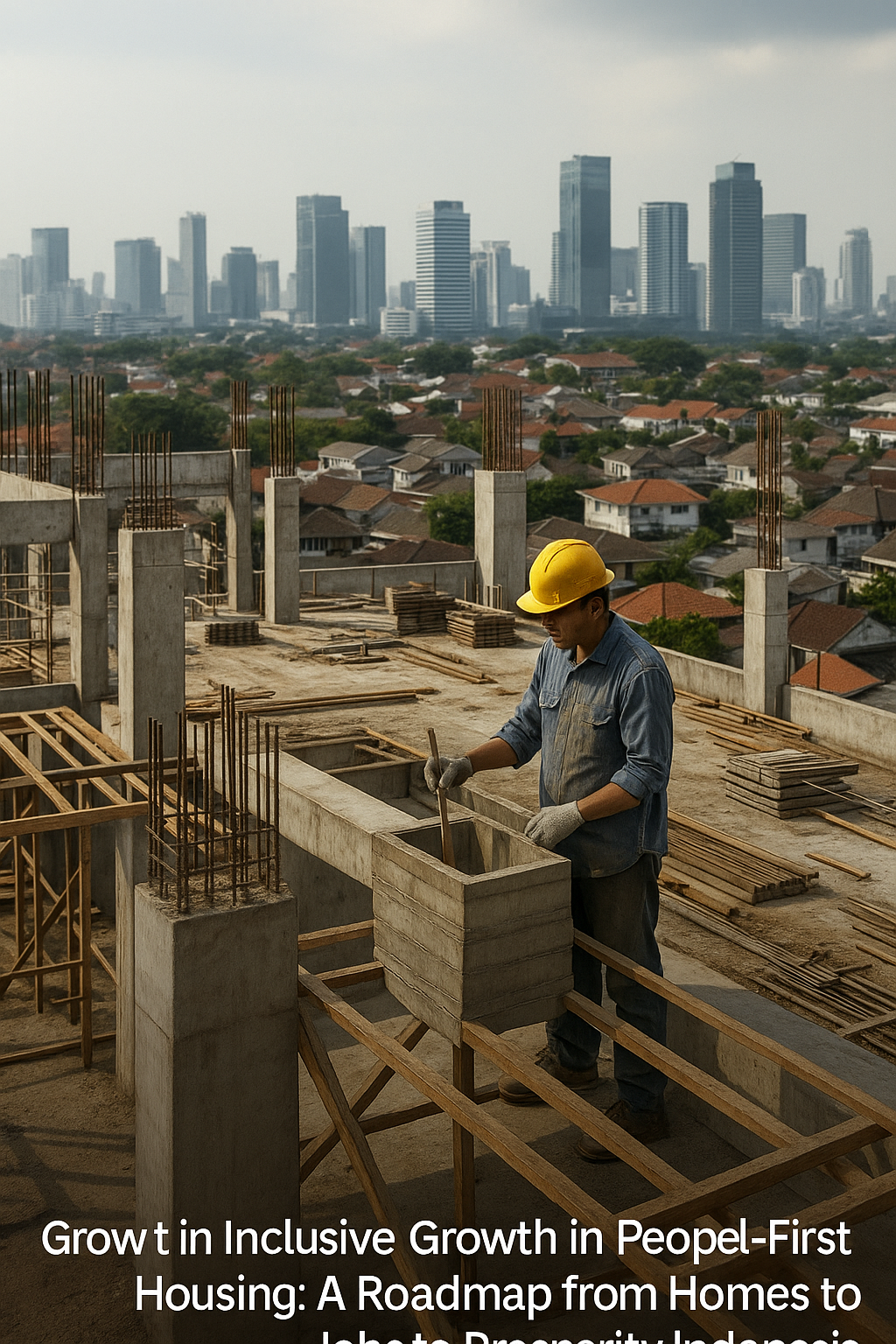Indonesia’s Housing Drive Fuels Growth, Jobs, and Inclusive Prosperity
According to Habib Rab, Lead Economist at the World Bank in Indonesia, “Indonesia’s housing program is not only about building homes—it’s also about building a stronger, more inclusive economy.”

- Country:
- Indonesia
Indonesia’s economy demonstrated remarkable resilience in the first quarter of 2025, growing by 4.9% year-over-year despite global trade turbulence and investment headwinds. The latest edition of the Indonesia Economic Prospects (IEP) report—People-First Housing: A Roadmap from Homes to Jobs to Prosperity—credits robust macroeconomic policies, including low inflation, fiscal prudence, and well-managed financial buffers, as key pillars of the country’s stability.
This resilience has translated into significant gains for the lower-income segments of the population. However, a moderation in consumption growth among aspiring middle-class households highlights an emerging challenge: sustaining income mobility and living standards in this crucial demographic.
World Bank Recommendations for Sustainable Growth
Carolyn Turk, World Bank Division Director for Indonesia and Timor-Leste, emphasized that “efficiency- and productivity-boosting structural reforms could unlock higher growth, reverse declining productivity trends, and create more and better jobs for Indonesians.”
To achieve this, the World Bank advocates for deeper reforms in:
-
Labor markets and skills development
-
Digital transformation
-
Regulatory streamlining to improve the ease of doing business
-
Trade and investment liberalization
These measures, if successfully implemented, could raise annual GDP growth to 5.5% by 2027.
Forecast: Solid Growth with Structural Supports
The IEP report projects Indonesia’s economy will expand by an average of 4.8% annually through 2027. Investment momentum is expected to increase, particularly through:
-
The establishment of the Danantara Sovereign Wealth Fund, aimed at catalyzing public-private investment flows.
-
A major government-led housing initiative, anchored in the broader “people-first” development framework.
Housing as an Engine of Inclusive Growth
Central to Indonesia’s growth strategy is the government’s bold initiative to build 3 million housing units annually. With a projected US$3.8 billion in public investment each year, the housing sector is positioned to become a national catalyst for employment, private sector mobilization, and improved quality of life. The housing strategy could:
-
Generate 2.3 million jobs
-
Mobilize US$2.8 billion in private capital
-
Increase access to safer, more resilient, and affordable housing
-
Strengthen social and economic inclusion across rural and urban communities
Four Strategic Priorities for Housing Reform
To maximize the transformative power of this initiative, the report recommends a four-pronged strategy:
-
Scaling investment in housing and urban infrastructure, particularly in underserved areas.
-
Reforming public housing finance to draw in private investment and expand credit access.
-
Integrating disaster resilience into housing design and policy, given Indonesia’s vulnerability to natural hazards.
-
Improving coordination and governance across national and local government agencies to ensure efficient implementation.
Vision: From Shelter to Shared Prosperity
According to Habib Rab, Lead Economist at the World Bank in Indonesia, “Indonesia’s housing program is not only about building homes—it’s also about building a stronger, more inclusive economy.” By synchronizing housing development with infrastructure, financial systems, and disaster preparedness, the country can unlock broad-based economic opportunities while lifting millions out of precarious living conditions.
The 2025 IEP report underscores that the path to sustainable prosperity in Indonesia lies not just in GDP numbers, but in the tangible benefits of economic growth reaching people’s homes, livelihoods, and futures.










